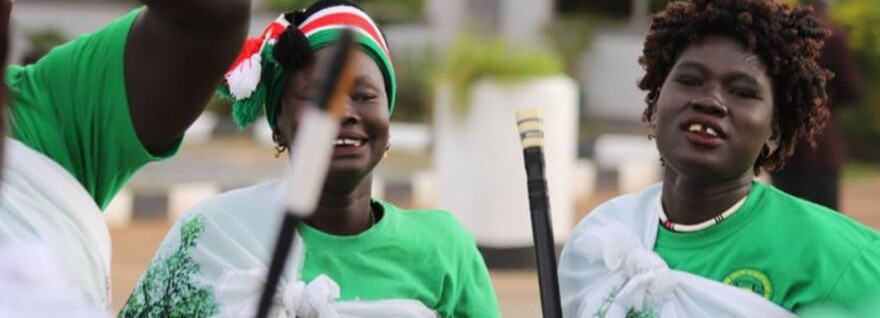Following consultations on the National Elections Act, 2012 (Amendments) Bill, 2023, stakeholders demand increased inclusivity for women, youth, and persons with disabilities.
A two-day consultation was organized in Juba on Thursday by the parliamentary committee on Legislation and Justice with support from UNMISS and UNDP.
The meeting brought together members of the revitalized Transitional National Legislative Assembly, the National Elections Commission, professionals, civil society organizations, women, youth, media, and persons with disabilities to gather input on addressing the outstanding issues in the elections bill.
In April of this year, the cabinet allocated percentages for various constituencies, including 50 percent to geographical constituencies, 35 percent to women, 10 percent to political parties, 3 percent to youths, and 2 percent to persons living with disabilities. However, the allocation of percentages among different groups remains a point of contention.
Speaking exclusively to Radio Tamazuj on Friday following the consultation, Viola Sati, one of the participants, expressed concern that the bill does not clearly define the position of women and youth, who have played a key role in the country’s development.
“I believe that the representation of women and youth in the Election Bill is insufficient. Women’s issues are of great importance to me, and I feel that women should be given more than just affirmative action,” she stated.
According to Sati, women and youth have made significant contributions to the development and peacebuilding efforts of South Sudan since its pursuit of independence. Consequently, they deserve greater representation.
“Women have made significant contributions to peacebuilding in the country. Without addressing issues that concern women, a nation cannot move forward. It is my hope and prayer that this nation begins to realize that it cannot grow without the participation of women,” Viola emphasized.
This call for increased representation follows a similar demand made a week ago by the South Sudan Women Intellectuals Forum, expressing concern over the reduction in the number of women in the national unity government and urging the government to uphold the 35 percent quota allocated to women in the peace agreement.
As outlined in the 2018 revitalized peace agreement, South Sudan is scheduled to hold its first-ever election in December 2024. However, critical elements necessary for the election, such as the Elections Act, population census, and repatriation of refugees from neighbouring countries, remain pending.
Sati stressed the importance of conducting a population census alongside preparations for the elections. “One question we need to address is whether elections should come first or the census. Ultimately, as a nation, we need to know how many people are in South Sudan,” she remarked.
Natalina Juma Malek, a member of the National Government Information Committee, called for amendments to the Bill, particularly regarding the percentages allocated to persons with disabilities and youth. She noted that the percentages reflected in the Bill were from the 2010 elections and should be increased.
“The bill is commendable, but we need to address the percentages for vulnerable groups, particularly persons with disabilities. We should increase their representation, as well as that of the youth,” Natalina emphasized. She also emphasized the need to honour the 35 percent affirmative action stipulated in the peace agreement.
Dr. Geri Raymondo, a former justice in the Court of Appeal and a law lecturer at the University of Juba, expressed doubts about the feasibility of holding elections next year, as key elements are still not in place.
Dr. Geri emphasized that for elections to take place in 2024, there must be a creation of civic space that allows freedom of expression, as well as the strengthening of the Supreme Court in the country in preparation for the electoral process.
“The conduct of election campaigns must be regulated to ensure the legality of the process. This requires civic space and freedom of expression. People must be allowed to express themselves,” he explained.




